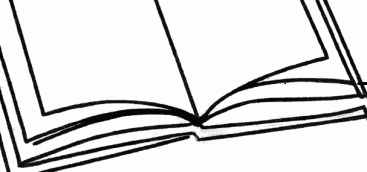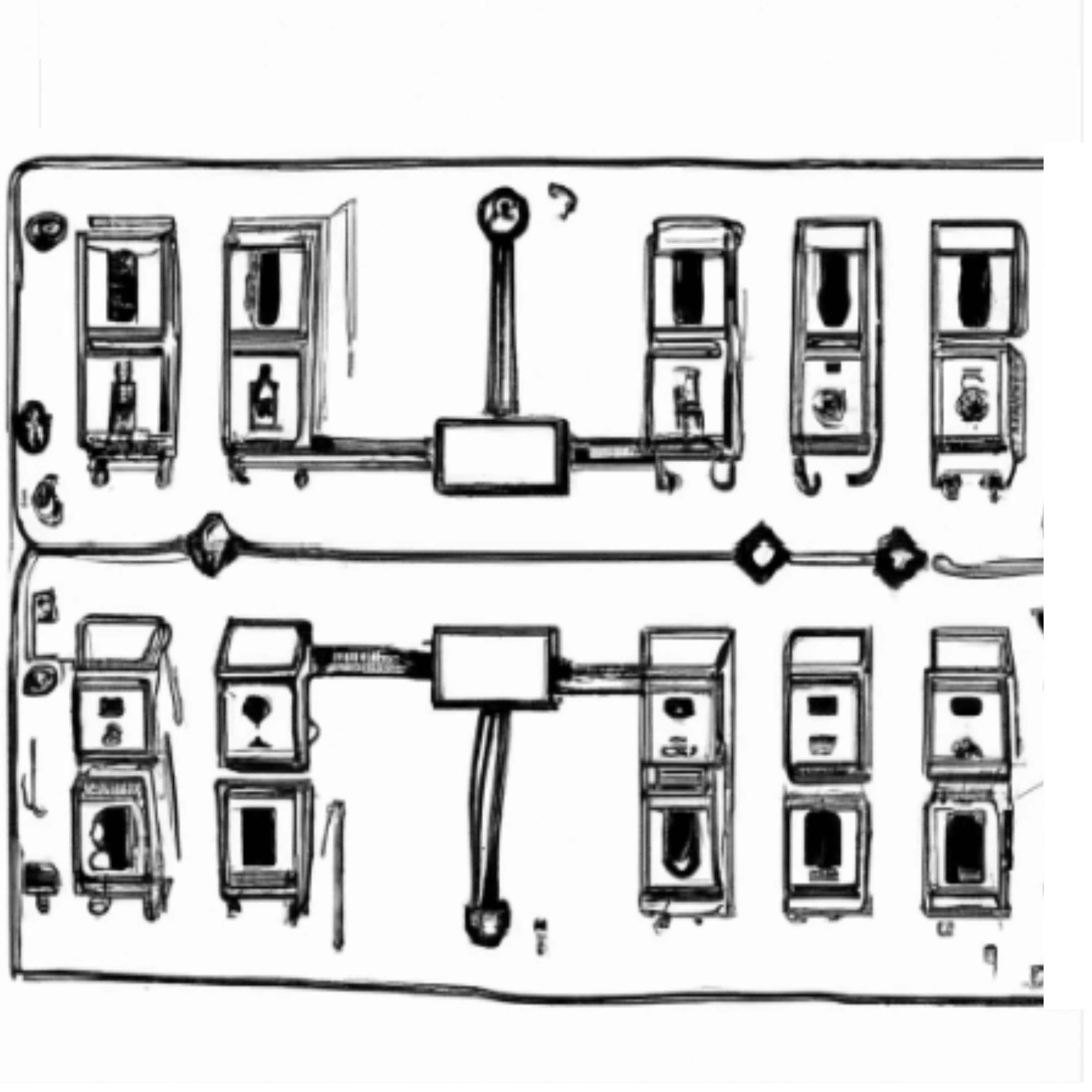

Published: 6 December 2023.
by Gerry Gaffney

Although he could have justified going straight home, Roy dropped into the office in the city.
His boss was going through the upcoming work assignments with Roy's colleagues.
“Ah,” he said, “here's one that'll make Roy's eyes light up. The old crossbar exchange in Altona is on the blink. Pity to have to waste time on it now, it’s getting decommissioned next month. But it's probably your last chance to work on one of these old beasts.”
The boss was right, Roy's eyes did light up. He loved the old crossbar exchanges, although his co-workers considered them difficult and temperamental, the sooner replaced the better.
“Apparently there are dropouts at morning peaks, so see if you can get there at 7:30 or so.”
“Sure,” said Roy.
“Take the work experience kid. He can tell his grand-kids he saw the last crossbar exchange in operation when dinosaurs walked the earth.”
The work experience kid, Alexander Keil, was grinning. He'd already finished one week of his two-week assignment. He was in his second last year of high school. He’d spent his first week mainly hanging around, listening to stories and fetching coffee, so an outing offered the promise of some excitement.
“Do you have a manual or something I can read before we go out?” he asked. Roy laughed. “It won’t be much use,” he said, but he pulled an old manufacturer's maintenance guide from a shelf and passed it to the kid. He arranged to pick him up on his way to Altona at 7 the following morning.
Alexander was at the pickup point, bouncing up and down on the balls of his feet, when Roy arrived the next morning in the work van. By 7:30 they were parked outside the old exchange.
It was a solid brick building with heavy wooden doors. There was no sign indicating its function.
Inside there were banks of old switching systems making random clicking noises. Against one wall was a new installation, a white box the size of a small filing cabinet. Soon it would be switched on to replace the entire exchange. But for the moment the old electro-mechanical equipment was handling the hundreds of thousands of phone connections each day.
Alexander was looking through the manual. “How are we going to find what the problem is?”
Roy told him that they would use their ears and their sense of rhythm. He pulled out two dusty old foldable chairs and gave one to Alexander. “Wipe it down before you sit on it, watch for spiders. Then just sit here for a while, and listen.
“With these old exchanges, the secret is that you are in the machine. You can’t do that with electronic systems. With them you work by logic and inference. You’re always outside the machine. Outside the chipset. And that's better. More reliable. Cheaper. Easier to maintain and fix. But all the magic happens where you can's see it or hear it or feel it.
“With these old systems you can still feel the magic. The other guys laugh at me, but you know this experience, being able to hear and feel the machine, is kind of a special moment in history when the technology is still primitive and accessible. It’s like an old steam or internal combustion engine. In a few years this won't exist anywhere on earth. Every sort of switch, everything that depends on logic, will be controlled by circuitry that's hidden away inside a ceramic or plastic package. And most people will never even see them. The only people to really have an understanding of what's in those packages are the ones who design them for the chip manufacturers, the people who know what goes into the substrate, who design the switching logic circuitry. And soon even they will be gone because AIs are better at that type of design.
“But today you get the chance to be inside the chipset.”
He smiled and fell silent.
Alexander was surprised by this philosophical speech, and strangely moved.
“Listen,” Roy said.
It was nearly 8am and the number of calls being handled by the exchange began to increase rapidly. First random clicks, then a clacking rhythm and finally a constant immersive racket of relay switches being activated and deactivated.
“Now you're really inside the exchange,” Roy raised his voice over the noise. He turned his head from side to side. “Can you hear any anomalies?” he. asked.
Alexander shook his head. It was just noise. “Close your eyes,” said Roy, “and just focus on the sound. Take your time.”
With his eyes closed, Alexander gradually began to get a sense of waves of sound coursing through the old machinery. And in one place on the far left something was out of place. He opened his eyes. “Over there,” he shouted, pointing.
Roy grinned at him. “Yep.”
They walked over to the area where the sound was different.
“Now you have to use your eyes and your sense of touch,” said Roy. “What can you see?”
Alexander saw that the switches in one bank seemed to jitter and said so to Roy.
“Touch the frames of the switches to see if you're right,” he said. “Lightly, with the tips of your fingers.”
Alexander put his finger on the frame holding the jittering switch, then on the adjacent ones.
“Definitely this one,” he said. Roy could see the excitement in the kid's eyes.
Roy put his fingers on the frames and looked closely at the switches for a few moments.
“OK,” he said, “we've found the problem. That was the clever part. Now we go to the circuit diagrams and figure out how to bypass this switch set.”
Half an hour later they’d finished. The replacement switch set blended in perfectly with the music of the rest of the clattering exchange.
They locked up and Roy dropped Alexander back at the office before going to his next job. As the kid got out of the van, he turned to Roy and said, “Thanks a lot for that. That was one of the coolest things I've ever seen.”
Roy grinned and nodded.
***
The following is a review from the New York Times, December 21st, 2023.
I had few expectations of Alexander Kiel's latest work, 'Altona. 8:00am'.
In fact I knew very little about the artist, having missed his generally acclaimed pop-up exhibition in Soho in May this year.
This new work is an externally featureless tunnel, large enough to walk through without bending one’s head. A simple sliding door admits up to four people at a time.
There was a buzz of excitement in the line. (My NY Times credentials failed to convince the annoyingly egalitarian staff at MONA that I should get any priority.) Those exiting the exhibit do so into another area that's not visible from the entry, and perhaps this emphasises the conceit that those who emerge are not the same as those who entered.
Inside, the low ambient light and the clearly visible exit sign are adequate to avoid any feelings of claustrophobia.
Once the entry door closed behind me and the three others who entered with me, a random clicking sound began, emerging from various parts of the tunnel. Over the next couple of minutes it gained force, with a noise like an office full of old-time stenographers banging out letters on their Smith Coronas, finally rising to a crescendo that emanated not from any particular point but from entire structure.
Prior to entry we'd each received instructions to close our eyes and enjoy the sound, and also to try to identify any anomalous noises. I did as instructed and let the waves of strangely musical sound wash over me. I could see that the entire surface of the tunnel was vibrating to make the sounds that we were experiencing – “hearing” is an inadequate description. One felt rather than heard.
Gradually I became aware of a tone that didn't seem to fit in with the overall soundscape. My companions, I saw, had also noticed it, and we gravitated together towards a particular area on the surface, visibly indistinguishable from any other, at about waist height, where the discordant note seemed to originate. One of my companions, a young woman with an impressive amount of body art, reached out and touched the spot.
Immediately the wash of sound began to scale down into a deep bass and ended with a mechanical thunk, as if a great machine had finally stopped working and would never reawaken.
We stood, stunned, in the silence filling the empty space. After what was probably only a few seconds, the exit door opened and we walked out.
I was strangely moved by the experience, and judging from the faces of my fellows, so were they.
Kiel says that each instance (as he calls the individual sessions) is unique. The installation uses an AI that decides, perhaps on a whim, what sonic register to use. This, he says, is completely outside his control. The instances however are similar in structure. The slow start and crescendo are based on the internal operations of an ancient mechanical telecommunications switching system over a 5-minute period from 8am on a typical weekday in Altona, a suburb in Melbourne, Australia. Many years ago, such devices were mechanical and could be experienced directly. Maintenance personnel would use their sense of hearing to diagnose and trouble-shoot. Now, however, those mechanisms have been replaced with noiseless electronic systems whose operation is entirely hidden. Kiel’s installation is a way of re-presenting that operation to make it apprehensible through sound. The location of the anomaly is also chosen by the AI, and it can occur anywhere in the installation.
MONA has established a reputation for curating the quirky, and it's tempting to see ‘Altona: 8:00am’ as merely an example of this. But in reflecting on the experience (and I went back three times), I became more and more certain that this was a truly great work of art.
If the purpose of the artist is to uncover or expose a hidden truth, and through artifice re-present it in a way that is startling or engaging and that causes us to consider new ways of perceiving and understanding the world around us, then Kiel has truly achieved this.
'Altona: 8:00am' is part of the permanent collection at the Museum of Old and New Art (MONA) in Hobart, Australia.
***
Outside Kiel's exhibit, there is a plaque with a simple dedication:
“The secret is that you are in the machine.”
In memory of Roy Madden. 1959-1996.
Copyright © Gerry Gaffney 2023